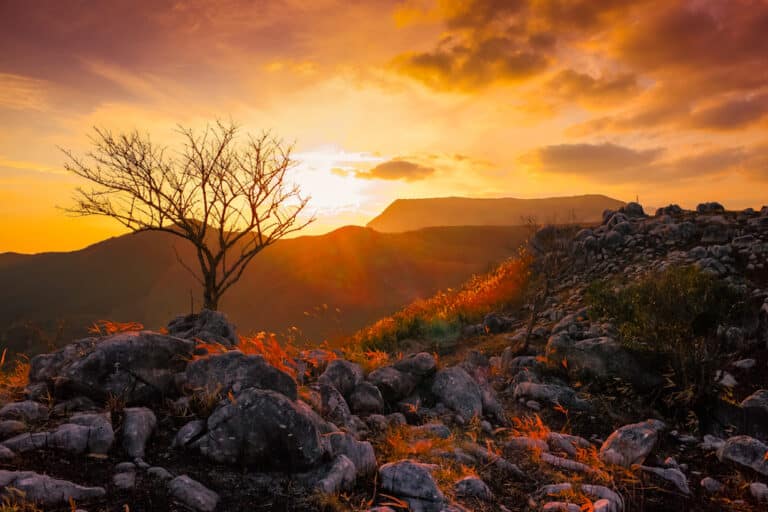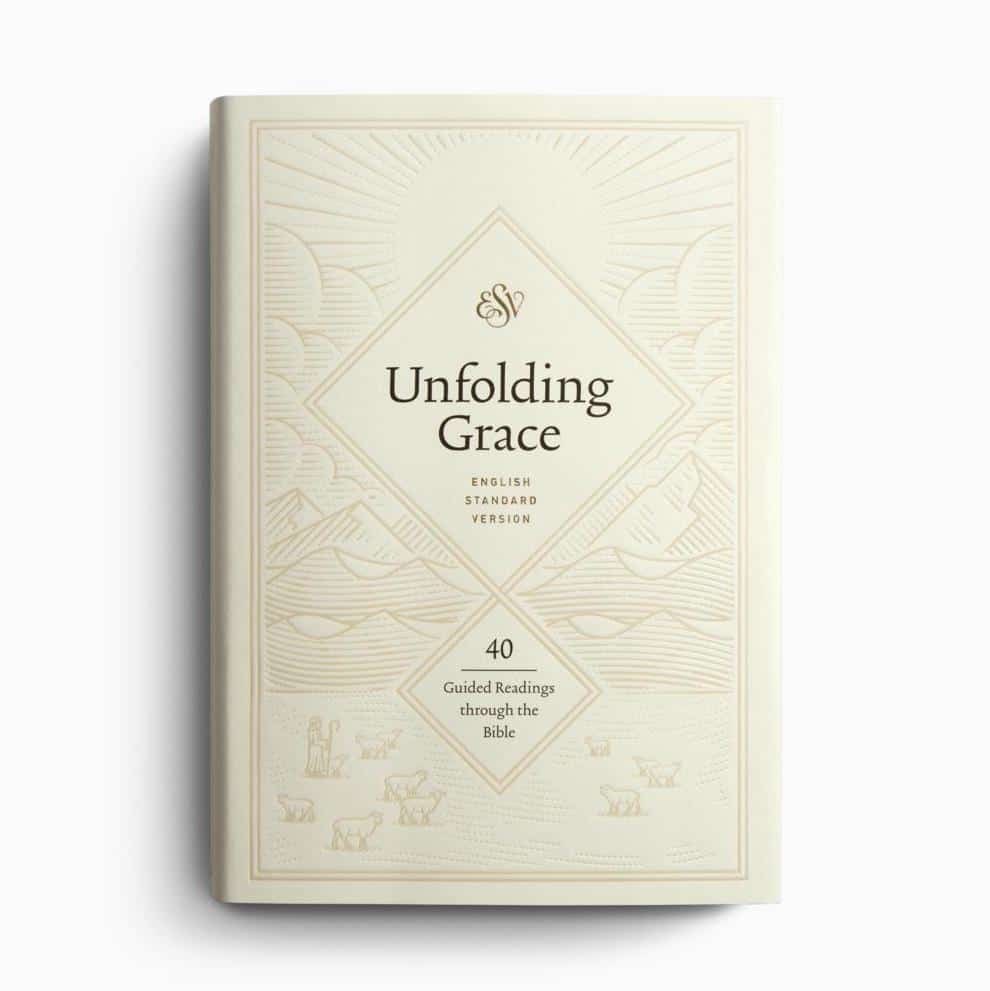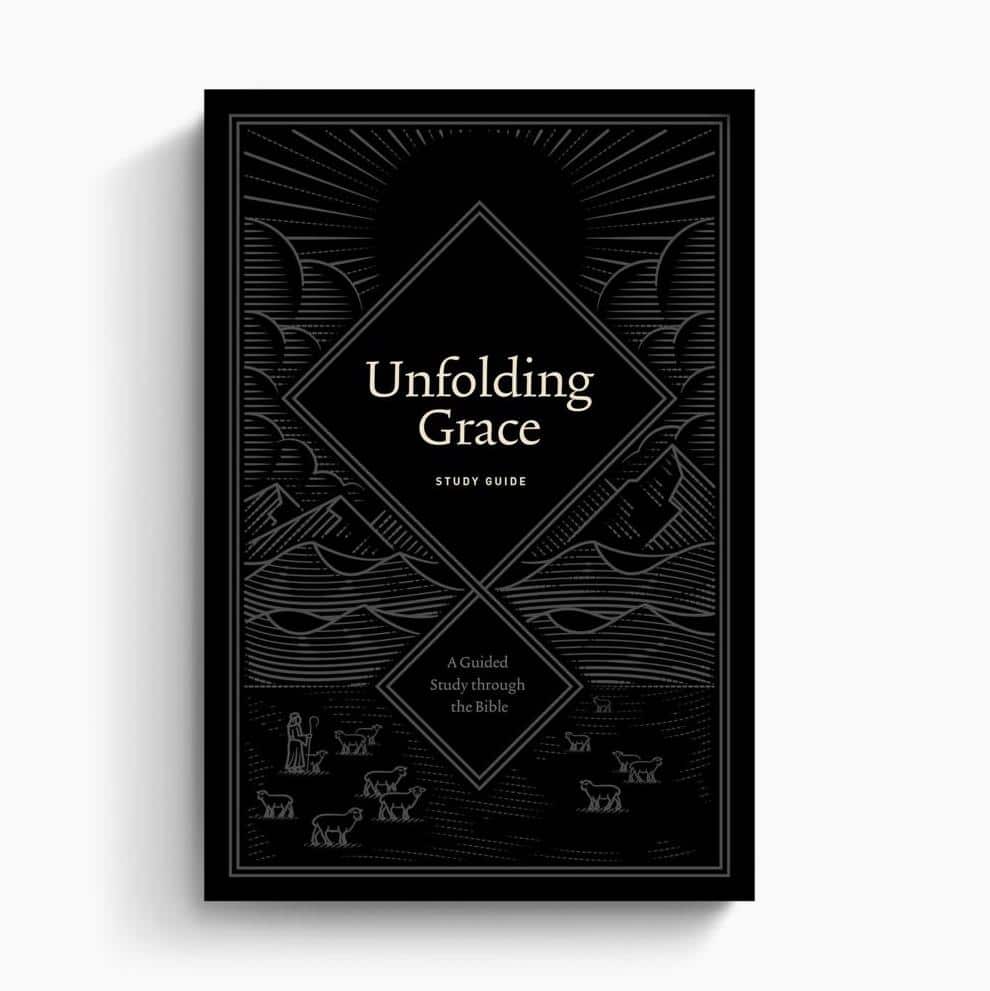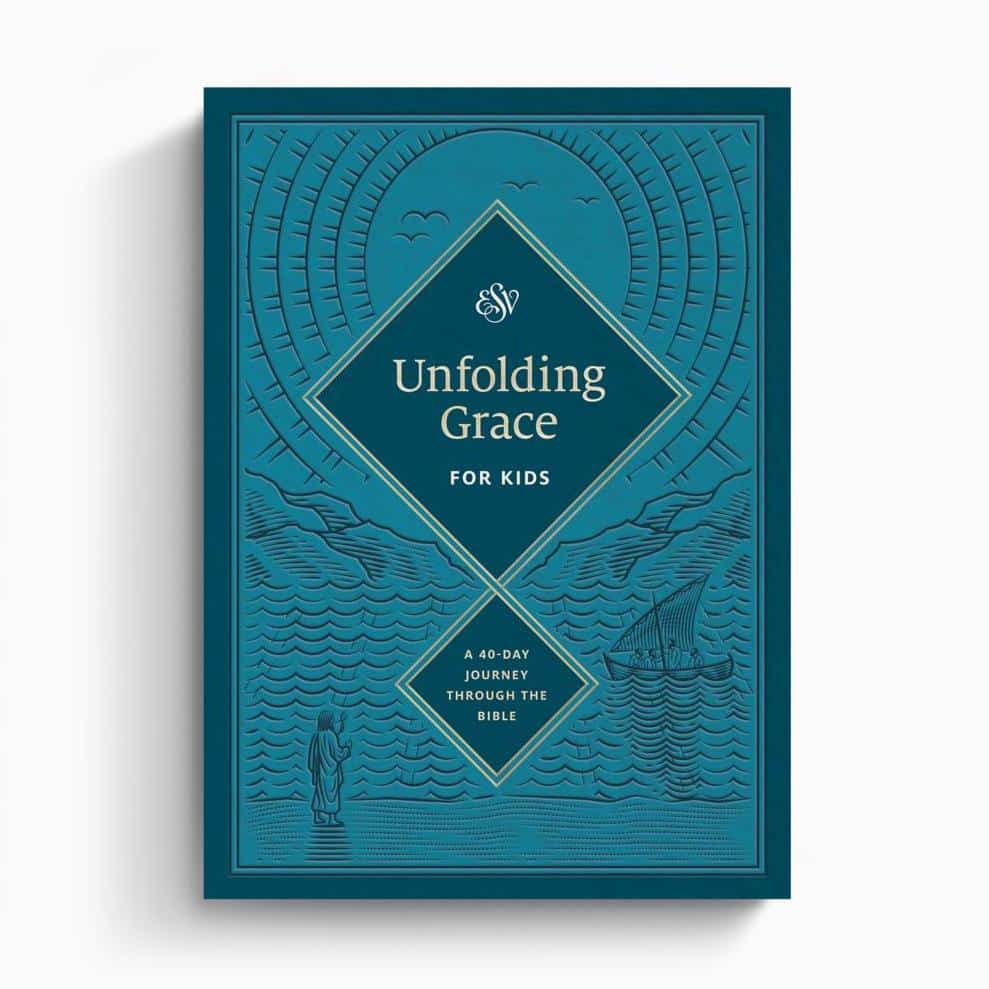LESSON THREE
Babel and the Promise to Abraham
God gives Noah and his descendants a fresh start. But it does not take long for humanity to assert its supposed independence from God once again. Men build a great tower to make a great name for themselves. But God interrupts their plans, confusing their language and dispersing them over the earth.
Through Abraham the Serpent-crushing descendant will come and all the peoples of the earth will be blessed.
How will God fulfill his promise to send the offspring of the woman to crush the head of the Serpent? How will God restore to us the blessing of knowing him and reflecting his character in a flourishing world? How will he bring grace to the now-scattered nations of the world? He begins by making a promise to one man, Abraham. God promises him land, descendants, and blessing.
Through Abraham the Serpent-crushing descendant will come and all the peoples of the earth will be blessed.
SCRIPTURE READING
Genesis 10-12
Reading Time: 7 Minutes
These are the generations of the sons of Noah, Shem, Ham, and Japheth. Sons were born to them after the flood.
The sons of Japheth: Gomer, Magog, Madai, Javan, Tubal, Meshech, and Tiras. The sons of Gomer: Ashkenaz, Riphath, and Togarmah. The sons of Javan: Elishah, Tarshish, Kittim, and Dodanim. From these the coastland peoples spread in their lands, each with his own language, by their clans, in their nations.
The sons of Ham: Cush, Egypt, Put, and Canaan. The sons of Cush: Seba, Havilah, Sabtah, Raamah, and Sabteca. The sons of Raamah: Sheba and Dedan. Cush fathered Nimrod; he was the first on earth to be a mighty man. He was a mighty hunter before the Lord. Therefore it is said, “Like Nimrod a mighty hunter before the Lord.” The beginning of his kingdom was Babel, Erech, Accad, and Calneh, in the land of Shinar. From that land he went into Assyria and built Nineveh, Rehoboth-Ir, Calah, and Resen between Nineveh and Calah; that is the great city. Egypt fathered Ludim, Anamim, Lehabim, Naphtuhim, Pathrusim, Casluhim (from whom the Philistines came), and Caphtorim.
Canaan fathered Sidon his firstborn and Heth, and the Jebusites, the Amorites, the Girgashites, the Hivites, the Arkites, the Sinites, the Arvadites, the Zemarites, and the Hamathites. Afterward the clans of the Canaanites dispersed. And the territory of the Canaanites extended from Sidon in the direction of Gerar as far as Gaza, and in the direction of Sodom, Gomorrah, Admah, and Zeboiim, as far as Lasha. These are the sons of Ham, by their clans, their languages, their lands, and their nations.
To Shem also, the father of all the children of Eber, the elder brother of Japheth, children were born. The sons of Shem: Elam, Asshur, Arpachshad, Lud, and Aram. The sons of Aram: Uz, Hul, Gether, and Mash. Arpachshad fathered Shelah; and Shelah fathered Eber. To Eber were born two sons: the name of the one was Peleg, for in his days the earth was divided, and his brother’s name was Joktan. Joktan fathered Almodad, Sheleph, Hazarmaveth, Jerah, Hadoram, Uzal, Diklah, Obal, Abimael, Sheba, Ophir, Havilah, and Jobab; all these were the sons of Joktan. The territory in which they lived extended from Mesha in the direction of Sephar to the hill country of the east. These are the sons of Shem, by their clans, their languages, their lands, and their nations.
These are the clans of the sons of Noah, according to their genealogies, in their nations, and from these the nations spread abroad on the earth after the flood.
Now the whole earth had one language and the same words. And as people migrated from the east, they found a plain in the land of Shinar and settled there. And they said to one another, “Come, let us make bricks, and burn them thoroughly.” And they had brick for stone, and bitumen for mortar. Then they said, “Come, let us build ourselves a city and a tower with its top in the heavens, and let us make a name for ourselves, lest we be dispersed over the face of the whole earth.” And the Lord came down to see the city and the tower, which the children of man had built. And the Lord said, “Behold, they are one people, and they have all one language, and this is only the beginning of what they will do. And nothing that they propose to do will now be impossible for them. Come, let us go down and there confuse their language, so that they may not understand one another’s speech.” So the Lord dispersed them from there over the face of all the earth, and they left off building the city. Therefore its name was called Babel, because there the Lord confused the language of all the earth. And from there the Lord dispersed them over the face of all the earth.
These are the generations of Shem. When Shem was 100 years old, he fathered Arpachshad two years after the flood. And Shem lived after he fathered Arpachshad 500 years and had other sons and daughters.
When Arpachshad had lived 35 years, he fathered Shelah. And Arpachshad lived after he fathered Shelah 403 years and had other sons and daughters.
When Shelah had lived 30 years, he fathered Eber. And Shelah lived after he fathered Eber 403 years and had other sons and daughters.
When Eber had lived 34 years, he fathered Peleg. And Eber lived after he fathered Peleg 430 years and had other sons and daughters.
When Peleg had lived 30 years, he fathered Reu. And Peleg lived after he fathered Reu 209 years and had other sons and daughters.
When Reu had lived 32 years, he fathered Serug. And Reu lived after he fathered Serug 207 years and had other sons and daughters.
When Serug had lived 30 years, he fathered Nahor. And Serug lived after he fathered Nahor 200 years and had other sons and daughters.
When Nahor had lived 29 years, he fathered Terah. And Nahor lived after he fathered Terah 119 years and had other sons and daughters.
When Terah had lived 70 years, he fathered Abram, Nahor, and Haran.
Now these are the generations of Terah. Terah fathered Abram, Nahor, and Haran; and Haran fathered Lot. Haran died in the presence of his father Terah in the land of his kindred, in Ur of the Chaldeans. And Abram and Nahor took wives. The name of Abram’s wife was Sarai, and the name of Nahor’s wife, Milcah, the daughter of Haran the father of Milcah and Iscah. Now Sarai was barren; she had no child.
Terah took Abram his son and Lot the son of Haran, his grandson, and Sarai his daughter-in-law, his son Abram’s wife, and they went forth together from Ur of the Chaldeans to go into the land of Canaan, but when they came to Haran, they settled there. The days of Terah were 205 years, and Terah died in Haran.
Now the Lord said to Abram, “Go from your country and your kindred and your father’s house to the land that I will show you. And I will make of you a great nation, and I will bless you and make your name great, so that you will be a blessing. I will bless those who bless you, and him who dishonors you I will curse, and in you all the families of the earth shall be blessed.”
So Abram went, as the Lord had told him, and Lot went with him. Abram was seventy-five years old when he departed from Haran. And Abram took Sarai his wife, and Lot his brother’s son, and all their possessions that they had gathered, and the people that they had acquired in Haran, and they set out to go to the land of Canaan. When they came to the land of Canaan, Abram passed through the land to the place at Shechem, to the oak of Moreh. At that time the Canaanites were in the land. Then the Lord appeared to Abram and said, “To your offspring I will give this land.” So he built there an altar to the Lord, who had appeared to him. From there he moved to the hill country on the east of Bethel and pitched his tent, with Bethel on the west and Ai on the east. And there he built an altar to the Lord and called upon the name of the Lord. And Abram journeyed on, still going toward the Negeb.
Now there was a famine in the land. So Abram went down to Egypt to sojourn there, for the famine was severe in the land. When he was about to enter Egypt, he said to Sarai his wife, “I know that you are a woman beautiful in appearance, and when the Egyptians see you, they will say, ‘This is his wife.’ Then they will kill me, but they will let you live. Say you are my sister, that it may go well with me because of you, and that my life may be spared for your sake.” When Abram entered Egypt, the Egyptians saw that the woman was very beautiful. And when the princes of Pharaoh saw her, they praised her to Pharaoh. And the woman was taken into Pharaoh’s house. And for her sake he dealt well with Abram; and he had sheep, oxen, male donkeys, male servants, female servants, female donkeys, and camels.
But the Lord afflicted Pharaoh and his house with great plagues because of Sarai, Abram’s wife. So Pharaoh called Abram and said, “What is this you have done to me? Why did you not tell me that she was your wife? Why did you say, ‘She is my sister,’ so that I took her for my wife? Now then, here is your wife; take her, and go.” And Pharaoh gave men orders concerning him, and they sent him away with his wife and all that he had.
GENESIS 10-12
Study Guide Questions
- What does the story of Babel teach us about mankind’s values and priorities?
- What three major promises does God make to Abraham?
GENESIS 11:1–9; 12:1–20
Family Discussion Questions
- Why did the people want to build the tower of Babel?
- Why was this a problem and why did God judge them for it?
- What are three things God promised to Abraham?
- How does Jesus fulfill the promise to bring blessing to all nations?
PART ONE REVIEW
The Story Begins
God creates a good world and fills it with communal life. He makes humanity in his image to know him and reflect his character and rule. But Adam and Eve shatter the peace of Eden through their sinful rejection of God. The Lord rightly responds with just judgment: man is sent out of God’s presence in Eden, living exiled from his true home with God and then eventually returning to dust in death. Yet God uses this now fallen world to display his infinite mercy through the story of redemption that follows. He promises to send a descendant of Eve, a Savior, to conquer the Evil One and restore the lost blessings of Eden to mankind.
God judges the world with a flood, yet he graciously preserves Noah and his family so that God might continue to unfold his promises to renew the world. The Lord then chooses to bless one man—Abraham—as the means of blessing for all peoples. In generation after generation God overcomes obstacles to ensure that his promise safely passes from Abraham to Isaac and to Jacob and to
Jacob’s twelve sons. Even though these sons betray their brother Joseph by selling him into slavery, the Lord blesses Joseph and uses him to preserve his family when they move to Egypt in the midst of a famine.
LESSON THREE
Babel and the Promise to Abraham
God gave Noah and his family a fresh start. But it did not take long before humans again turned away from God. They built a great tower to show how great they were. But God interrupted their plans, confused their language, and scattered them over the earth.
But this raised questions. When would God send Eve’s descendant—the Savior—who would defeat the Serpent and put an end to sin and death? How would God restore people to enjoy his presence like they did in Eden? We see God’s plan unfold as he made a promise to Abraham. God promised him land, descendants, and blessing for all peoples. The Savior would come through Abraham.
SCRIPTURE READING
Genesis 11:1-9
Reading Time: 3 Minutes
Now the whole earth had one language and the same words. And as people migrated from the east, they found a plain in the land of Shinar and settled there. And they said to one another, “Come, let us make bricks, and burn them thoroughly.” And they had brick for stone, and bitumen for mortar. Then they said, “Come, let us build ourselves a city and a tower with its top in the heavens, and let us make a name for ourselves, lest we be dispersed over the face of the whole earth.” And the Lord came down to see the city and the tower, which the children of man had built. And the Lord said, “Behold, they are one people, and they have all one language, and this is only the beginning of what they will do. And nothing that they propose to do will now be impossible for them. Come, let us go down and there confuse their language, so that they may not understand one another’s speech.” So the Lord dispersed them from there over the face of all the earth, and they left off building the city. Therefore its name was called Babel, because there the Lord confused the language of all the earth. And from there the Lord dispersed them over the face of all the earth.
Genesis 12:1-20
Now the Lord said to Abram, “Go from your country and your kindred and your father’s house to the land that I will show you. And I will make of you a great nation, and I will bless you and make your name great, so that you will be a blessing. I will bless those who bless you, and him who dishonors you I will curse, and in you all the families of the earth shall be blessed.”
So Abram went, as the Lord had told him, and Lot went with him. Abram was seventy-five years old when he departed from Haran. And Abram took Sarai his wife, and Lot his brother’s son, and all their possessions that they had gathered, and the people that they had acquired in Haran, and they set out to go to the land of Canaan. When they came to the land of Canaan, Abram passed through the land to the place at Shechem, to the oak of Moreh. At that time the Canaanites were in the land. Then the Lord appeared to Abram and said, “To your offspring I will give this land.” So he built there an altar to the Lord, who had appeared to him. From there he moved to the hill country on the east of Bethel and pitched his tent, with Bethel on the west and Ai on the east. And there he built an altar to the Lord and called upon the name of the Lord. And Abram journeyed on, still going toward the Negeb.
Now there was a famine in the land. So Abram went down to Egypt to sojourn there, for the famine was severe in the land. When he was about to enter Egypt, he said to Sarai his wife, “I know that you are a woman beautiful in appearance, and when the Egyptians see you, they will say, ‘This is his wife.’ Then they will kill me, but they will let you live. Say you are my sister, that it may go well with me because of you, and that my life may be spared for your sake.” When Abram entered Egypt, the Egyptians saw that the woman was very beautiful. And when the princes of Pharaoh saw her, they praised her to Pharaoh. And the woman was taken into Pharaoh’s house. And for her sake he dealt well with Abram; and he had sheep, oxen, male donkeys, male servants, female servants, female donkeys, and camels.
But the Lord afflicted Pharaoh and his house with great plagues because of Sarai, Abram’s wife. So Pharaoh called Abram and said, “What is this you have done to me? Why did you not tell me that she was your wife? Why did you say, ‘She is my sister,’ so that I took her for my wife? Now then, here is your wife; take her, and go.” And Pharaoh gave men orders concerning him, and they sent him away with his wife and all that he had.
SERMON SERIES
Finding Our Purpose in God’s Plan
These six messages belong to the Unfolding Grace: Finding Our Purpose in God’s Plan sermon series that author and pastor Drew Hunter preached at his home church. Through these six messages, he tells us the story of the Bible—a story that reveals the grace of God.
BUY THE BOOK
Book Series
The content you enjoy in this Unfolding Grace Reading Plan comes from the Unfolding Grace book series by Pastor Drew Hunter, published by Crossway Publishers. We encourage you to purchase a physical copy of Unfolding Grace to use individually, with your family, or as a small group.








